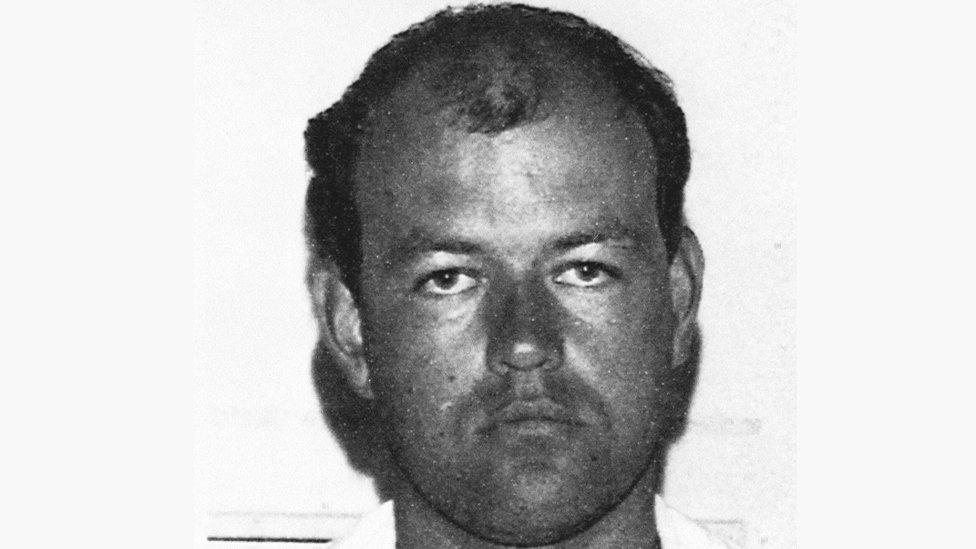Colin Pitchfork: Double child killer to face public parole hearing
- Published
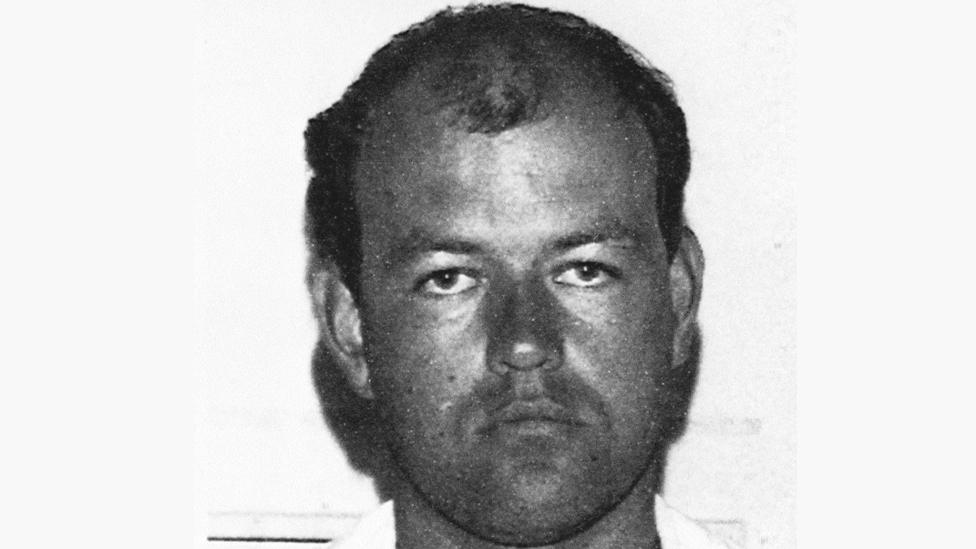
Colin Pitchfork was released from prison in 2021 after 33 years but later recalled
The next parole hearing for double child killer and rapist Colin Pitchfork will be held in public in July, the Parole Board has ruled.
Pitchfork was jailed for life after raping and strangling two 15-year-old girls, Lynda Mann and Dawn Ashworth, in Leicestershire in 1983 and 1986.
The 64-year-old was granted parole but this was challenged and the Parole Board denied his release in December.
Pitchfork then successfully applied for that decision to be reconsidered.
Parole Board hearings are typically conducted behind closed doors, but can now, in certain circumstances, take place in public if requested, after changes in the law.
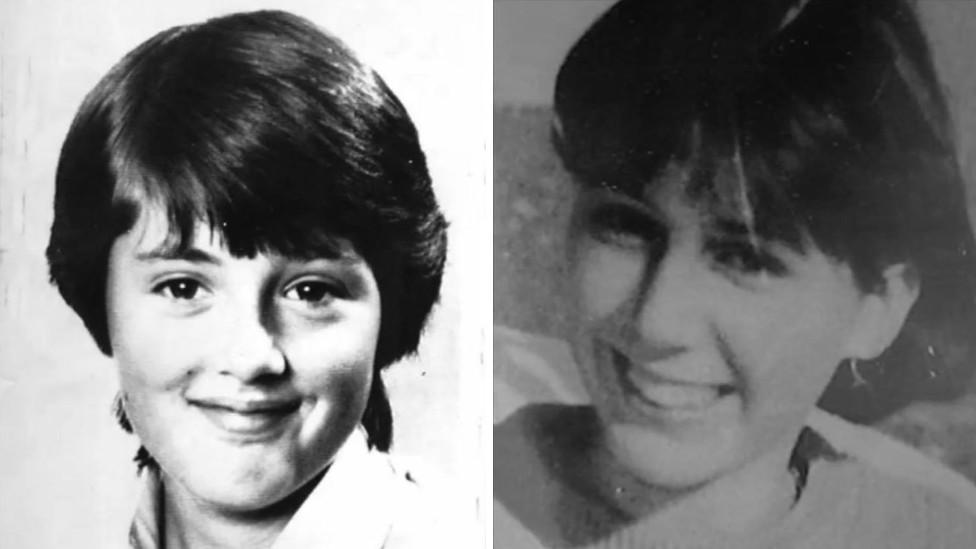
Dawn Ashworth and Lynda Mann were raped and murdered by Pitchfork
Caroline Corby, Parole Board chairwoman, said: "I have carefully considered Mr Pitchfork's representations and I have concluded that the interests of justice outweigh the points raised on Mr Pitchfork's behalf.
"The hearing itself will take place at a face-to-face hearing with the parties and panel at a secure location. However, arrangements will be made for members of the public to view the hearing remotely at a place where they will be able to more easily attend."
The Parole Board said it received representations - including from Mr Costa - in support of the hearing being held in public.
These included that the case "remains a very sensitive matter to Mr Costa's constituents and continues to attract national attention due to the horrific nature of the crimes".
The Parole Board also asked for submissions from the justice secretary, and Pitchfork through his legal representative.
In the submission, the justice secretary supported a public hearing, saying it "would show how painstaking Parole Board panels are when it comes to assessing risk".
Pitchfork contested the move, adding a public hearing was "not in the interests of justice".
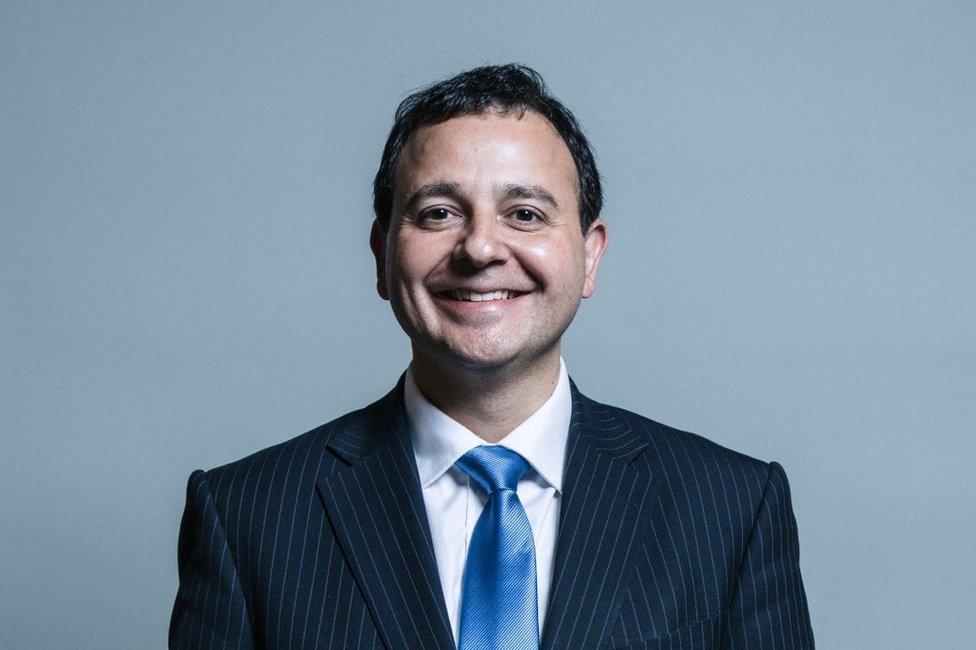
South Leicestershire MP Alberto Costa has campaigned against Pitchfork's release
Conservative MP for South Leicestershire Alberto Costa, who has been campaigning against Pitchfork's release, had applied for the hearing to be public in a bid to ensure "proper scrutiny" of the decision-making process.
Mr Costa said he "welcomed" the Parole Board's decision.
"It is a very rare move indeed for a parole hearing to be heard in public," he told the BBC.
He said the "barbaric" case was still "very vivid" in people's minds.
Mr Costa added that while having the case heard in public would not bring people closure, it would give them "assurance".
Pitchfork, who became the first murderer to be convicted using DNA evidence, was released in 2021 but recalled two months later.
The Parole Board deemed his recall "inappropriate" after it was established he had not gone anywhere he was not allowed to visit, and a condition of his release - a requirement to take polygraph tests - was unlawful.
Pitchfork was granted parole in June last year, but concerns about the danger Pitchfork posed caused Justice Secretary Alex Chalk to intervene, making an "application for reconsideration".
A judge, when asked to reconsider the June decision to release, agreed it was "irrational", leading to the panel hearing later in the year, which resulted in Pitchfork's release being denied.

Colin Pitchfork: Two brutal murders
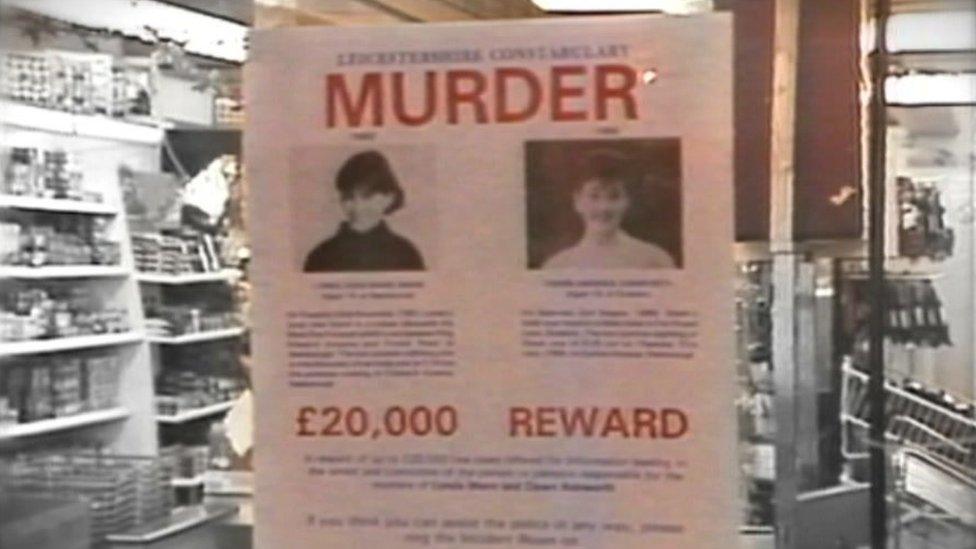
Colin Pitchfork, 22 at the time of the first murder, was married with two sons. He was a baker who grew up in rural Leicestershire and lived in Littlethorpe
In November 1983 he left his baby son sleeping in the back of his car and raped and strangled 15-year-old Lynda Mann in Narborough. He then drove home and put his son to bed
Three years later, less than a mile from where Lynda died, he raped and murdered Dawn Ashworth, also 15, of Enderby. The pathologist who examined her body described it as a "brutal sexual assault"
A police investigation initially led to the wrong person, a local 17-year-old who falsely confessed to one of the killings. After an unprecedented mass screening of 5,000 men using pioneering "DNA profiling" technology, Pitchfork was eventually caught. At first, he had evaded justice by persuading a colleague to take the test for him
He pleaded guilty to both murders in September 1987 and was sentenced to life in January 1988. The judge said the killings were "particularly sadistic" and he doubted Pitchfork would ever be released
In 2009, his 30-year life tariff was reduced by two years, external for "exceptional progress" - a decision that was strongly criticised by the families of his victims
He was moved to an undisclosed open prison at some point prior to 8 January 2017, after his request for release

Follow BBC Leicester on Facebook, external, on X, external, or on Instagram, external. Send your story ideas to eastmidsnews@bbc.co.uk, external or via WhatsApp, external on 0808 100 221
Related topics
- Published12 February 2024

- Published7 December 2023

- Published15 September 2023

- Published7 December 2022
